|
By Mary Boyle The list of classical ballets is not very long, but at the very top of them are all three of the ballets featuring the music of the great Russian composer, Pyotr Illyich Tchaikovsky: The Nutcracker, Sleeping Beauty, and Swan Lake. Even to the uninitiated, the music of Swan Lake is familiar because it is constantly used in film, television, and commercials; in fact, it's likely to be a ring tone option on your mobile phone. Interestingly, Swan Lake was Tchaikovsky's first ballet, unveiled in 1877 in Moscow and, at first, it wasn't very successful. Today, it is the second most performed ballet in the world, after The Nutcracker, and you now have your chance to see SWAN LAKE performed by the Milwaukee Ballet November 3-6 at the Marcus Center in Milwaukee. The story of Swan Lake, for those who are unfamiliar, is both a love story and the timeless tale of the battle for a crown, likely based on both German and Russian folk tales. The evil Von Rothbart (Davit Hovhannisyan), who is a confidante to the Queen, plans to take the throne through the use of his sorcery. Prince Siegfried (Randy Crespo/Parker Brasser-Vos), heir to the throne, has come of age and is being forced to wed by his mother, but wishes he could wed his childhood sweetheart, Princess Odette (Alana Griffith/Lizzie Tripp), who has suddenly gone missing. Von Rothbart has put a curse on Odette and her maidens that turned them all into swans during the day, only taking their human form at night. Siegfried is led to Odette in the night by Von Rothbart and learns her fate, pledging to always love her but, at the ball where his potential brides are presented, Siegfried is introduced to Odile (Marize Fumero/Marie Harrison-Collins), a copy of Odette created by Von Rothbart meant to fool Siegfried into pledging his love to the wrong woman, which will then seal the curse on Odette and her maidens and give Rothbart control of the throne. This ballet has several possible endings, from tragic to happy, but far be it from me to fill you in on this one. The music of Tchaikovsky, performed by the Milwaukee Ballet Orchestra under the direction of Andrews Sill, who has been with the Milwaukee Ballet since 2003 and is also the Associate Music Director of the New York City Ballet, is truly half of the reason one should see this production. While the music of Swan Lake is already unforgettable and easily recognizable, the orchestra, along with Associate Conductor Pasquale Laurino, makes the music come alive. This production marks the 5th time Michael Pink, who is celebrating his 20th Anniversary as Milwaukee Ballet's Artistic Director, has directed and choreographed Swan Lake for the Milwaukee Ballet, and his version is not only incredibly accessible to a wider audience (meaning, to people who do not necessarily think of themselves as fans of the ballet), but also an honest to goodness work of art. Classical ballets can sometimes be a bit tedious, but Pink's version of this classic is streamlined into two acts instead of 4 and is packed with enough emotion and drama to tell the story the way it is deserved to be told. My absolute favorite element is the flock of swans: their costumes, which replace the traditional tutu with tattered white dresses, were introduced in Pink’s 2nd production and embody both the curse they are under and the graceful creatures they become during the day; however, it's their choreography that is truly breathtaking – I would never get tired of watching it. I saw Alana Griffith as Odette and Randy Crespo as Siegfried and, I must say, their Pas de Deux was a triumph, while the entire production was pure magic. Don’t miss your chance to see this one. SWAN LAKE only runs through Sunday, November 6th, at the Marcus Center, located at 929 N. Water Street in Milwaukee. Tickets may be purchased online at https://www.milwaukeeballet.org/ or by calling the Milwaukee Ballet Box Office at 414-902-2103 or the Marcus Performing Arts Center Box Office at 414.273.7206. The Milwaukee Ballet will return to the Marcus Center December 10-24 with their annual production of THE NUTCRACKER. This year will be the final year to see the costumes and sets that have been used for the past 25 years before an all-new production of The Nutcracker will be unveiled in 2023! About Milwaukee Ballet Since 1970, Milwaukee Ballet has been making a name for themselves and the City of Milwaukee through the art of ballet and their mission to transform lives and connect communities through inspiring performance, community engagement, education, and training. Milwaukee Ballet is an international company of dancers, a thriving School & Academy, and a force for change in the community through their outreach and engagement programs.
0 Comments
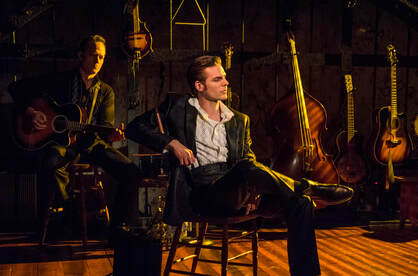 Kent M. Lewis and Corbin Mayer in the Milwaukee Repertory Theater's production of 'Ring of Fire: The Music of Johnny Cash' through May 26th at the Stackner Cabaret. Photo by Michael Brosilow. Kent M. Lewis and Corbin Mayer in the Milwaukee Repertory Theater's production of 'Ring of Fire: The Music of Johnny Cash' through May 26th at the Stackner Cabaret. Photo by Michael Brosilow. By Mary Boyle If I say, "The Man in Black," chances are you'll know who I'm talking about. Although the roots of Johnny Cash's music are in Gospel and Country, his fans come from all ages and all walks of life, which is why Ring of Fire: The Music of Johnny Cash should prove to be a very popular show this season at The Rep's Stackner Cabaret. Born in 1932, Johnny grew up steeped in music on a farm in Arkansas. Working and singing alongside his parents and 6 siblings in the cotton fields, it wasn't long after he left the farm and joined the Air Force that he started his first band. After his discharge, he married his first wife, Vivian Liberto, and worked a variety of odd jobs while he tried tirelessly to break into the music business. Finally, Johnny got his chance with Sam Philip's Sun Records, and went on to release several successful singles, including "Cry, Cry, Cry," "Folsum Prison Blues," and his biggest hit, "I Walk the Line." Johnny's success continued throughout the 1950's and 60's, playing the Grand Ole Opry and making appearances on the Ed Sullivan Show, among other programs, but the success came with a terrible price: a divorce and a drug problem. With the help of his singing partner, June Carter, Johnny overcame his addiction, married June, and enjoyed continued musical success throughout the rest of his life. Back by popular demand after a sold-out run in 2013, Ring of Fire was created by Richard Maltby, Jr. and conceived by William Meade and adapted from the Broadway Production by Richard Maltby, Jr. and Jason Edwards. Featuring a cast of five immensely talented "quadruple threat" performers who tell Cash's story through his songs, this is one show you do not want to miss! Kent M. Lewis and Corbin Mayer are both Johnny Cash in different stages of his life, and both have the voices and musical skills to pull it off. Alex Keiper returns to The Rep as the only woman in the cast, and takes her turn as all of the women in Cash's life: his mother, his first wife, and June. James David Larson and Paul Wyatt round out the band, playing a multitude of instruments between them, including stand-up bass, harmonica, guitar, mandolin, banjo, violin, and more; in fact, all five performers take turns playing multiple instruments over the course of the show. Dan Kazemi, a New York-based composer, actor, director, music director, and educator, as well as being an Associate Artist and frequent collaborator at The Rep, is both the Director and Music Director of the show, and just about everything musical this man touches at The Rep turns to gold, including this season's In the Heights and The All Night Strut!, as well as past shows such as Murder for Two, Guys and Dolls, Man of La Mancha, and Dreamgirls. With so many hit songs to cover, Ring of Fire focuses more on Cash's music, particularly in the first half of his career, without being able to get too deep into the details his life, which is the only disappointing aspect of the production. After Johnny married June, he landed his own show on network television called The Johnny Cash Show, where he crossed generations and genres by featuring musical greats like Bob Dylan and Neil Young, and used his platform to address social issues, such as the plight of Native Americans, prison reform, and the Vietnam War. He was the youngest living inductee into the Country Music Hall of Fame and one of only a handful of musicians who was also inducted into the Rock and Roll Hall of Fame. His career continued to be successful right up until 2003 when, in May of that year, June unexpectedly passed away; Johnny followed shortly after her that September. Johnny Cash remains one of the very few artists to sell over 90 million records, and will likely go down in history as one of the most popular American musicians of all time. Ring of Fire: The Music of Johnny Cash runs through May 26th at the Stackner Cabaret, located within the Patty & Jay Baker Theater Complex at 108 E. Wells St. in Milwaukee. Tickets can be purchased by calling (414) 224-9490, in-person at the Box Office, or online at www.MilwaukeeRep.com. About Milwaukee Repertory Theater The Milwaukee Rep is the largest performing arts organization in Wisconsin, in terms of audiences served, and one of the largest professional theaters in the country. Each year, The Rep welcomes up to 275,000 people at nearly 700 performances of 15 productions, ranging from compelling dramas, powerful classics, new plays, and full-scale musicals in its three unique performance venues: the Quadracci Powerhouse, Stiemke Studio, and Stackner Cabaret. Now in its 65th Season, The Rep has gained a national reputation as an incubator of new work, an agent of community change, and a forward-thinking provider of .vital arts education programs. Under the leadership of Artistic Director Mark Clements and Executive Director Chad Bauman, Milwaukee Repertory Theater ignites positive change in the cultural, social, and economic vitality of its community by creating world-class theater experiences that entertain, provoke, and inspire meaningful dialogue among an audience representative of Milwaukee's rich diversity. Riveredge Nature Center seeks to raise $6,000 to access $50,000 through A Community Thrives3/23/2019 Riveredge Nature Center is participating in A Community Thrives, a program through the USA Today Network that allows communities across the country to share their ideas for improvement and earn the chance to receive a portion of the $2,000,000 in grants to make their idea a reality. If Riveredge succeeds in fundraising $6,000 between now and April 12, the organization has the possibility of being awarded $50,000 through A Community Thrives for The River Connection Program. The River Connection Program was established in 1998 to provide socioeconomically disadvantaged children access to environmental educational experiences that would likely be unavailable to them otherwise. The River Connection Program is a collaborative undertaking of two well-respected environmental education organizations within the Greater Milwaukee area: Riveredge Nature Center and The Urban Ecology Center. This collaboration optimizes the opportunity for students to compare and contrast the rural Milwaukee River location of Riveredge Nature Center and the urban Milwaukee River location of the Urban Ecology Center (UEC). Exposure to both nature centers provides a broad portrait of Wisconsin’s natural landscape, illuminating the rural (Riveredge) and the urban (UEC). This diversity in exposure is critical, in both enhancing the learning experience through comparison and opening new doors to nature that students may not have considered before. "The River Connection Program is important on so many fronts," explained Jessica Jens, the Executive Director of Riveredge. "Through this program, children have the opportunity to compare a variety urban and rural environments, observe what is different and what they have in common, and then explore how those differences affect the health of our waterways. It’s critical that students take part in learning experiences outside of textbooks, and through The River Connection Program, we welcome children from all over the region to learn and care about the ecosystems we all share." To donate, go to the Riveredge A Community Thrives page at this link: https://www.crowdrise.com/o/en/campaign/riveredge-nature-center-wisconsin By Mary Boyle One thing that people really don't like to talk about is aging. Planning for the end of one's life just isn't a very happy subject, of course, but avoiding the subject and not making your wishes clear very early on can lead to a lot of family drama in the future — though hopefully not as much drama as Alexandra experiences in The Velocity of Autumn, a new play by Eric Coble, being staged by In Tandem Theatre in Milwaukee through March 17th at the intimate and casual Tenth Street Theatre. Eighty years old and widowed, Alexandra lives alone in a classic brownstone in Brooklyn; the place where she raised her three children, the place where she made her art, and the place where she fully intends to continue living alone until she dies. The trouble is, her two oldest children are not on board with her plan, and they have reached a rather extreme stand-off: Alexandra has barricaded herself in her home, threatening to blow the place up if anyone should try and remove her. Chris, Alexandra's youngest son who hasn't been home in 20 years, is sent in through a window to be a negotiator; not exactly the scene of a happy family reunion. Directed by Chris Flieller, The Velocity of Autumn is not, in itself, a terribly remarkable play as far as the writing goes, but it does draw forth some hard truths, in an often funny way, about aging, bringing about discussion on a difficult topic in the way that theatre is so brilliant at doing. What makes this particular production worth seeing is the cast. When it comes to Milwaukee’s finest actors, Angela Iannone is arguably one of the finest. A regular on Milwaukee stages and beyond, Iannone has been seen for the past few year’s on The Milwaukee Rep’s stage in A Christmas Carol, and has had multiple roles at In Tandem; she brings to life any character she plays, and she is a fascinating actor to watch. Steven Marzolf, who plays Chris, is an accomplished actor and director in his own right, and makes his return to the In Tandem stage over a decade after appearing in Two Rooms. Together, they take two underdeveloped characters and a somewhat predictable script and make it worth watching. The Velocity of Autumn runs through March 17th at the Tenth Street Theatre, located at 628 N. 10th St. in Milwaukee. Tickets are available by calling the Tenth Street Theatre Box Office at (414) 271-1371 or online at http://www.intandemtheatre.org. Join In Tandem for Giggles for Grown ups on Saturday, April 6th; a special fundraiser featuring a silent auction, wine pull, 50/50 raffle, cash bar, heavy appetizers and comedy & improv, galore! About In Tandem Theatre In Tandem Theatre, a 501(c)3 non-profit, was founded in 1998 with the commitment to produce exciting, innovative and professional live theatre by presenting creative and eclectic programming that enlightens, inspires, provokes and entertains a diverse audience in an intimate atmosphere. Its name, In Tandem Theatre, reflects the connection between audience and actor, the audience and the written word – an intimate experience obtained when live audiences are engaged in strong storytelling. By Mary Boyle Most children in public schools in America take a US History class. If I mention the words "Manifest Destiny," "Transcontinental Railroad," and "Gold Rush," most people will have at least a hazy recollection of learning about these things in class. You may remember that many of the workers who built the Transcontinental Railroad, for instance, were Chinese, and that many of those workers came here by the lure of California's Gold Rush but, as far as the Chinese in America are concerned, that's about all your average person would know. Digging into that history a bit further is what inspired playwright Lloyd Suh to write The Chinese Lady, which premiered just last July in Massachutses, then in New York this past October, and now continues its journey on The Rep's Stiemke Studio stage as part of the John (Jack) D. Lewis New Play Development Program. Directed by May Adrales, who also directed In the Heights earlier this season at The Rep, The Chinese Lady is based on the true story of Afong Moy, who was brought to the US by the Carne Brothers, importers of Chinese goods, in 1834 when she was just 14 years old. She was set up as an exhibit in the Peale Museum in New York in a room furnished with the very goods that the Carne Brothers imported (and which were conveniently available for purchase after the show). Audiences paid to watch Moy eat with chopsticks, drink tea in a ritualistic manner, and walk about on her tiny, bound feet. This was the age of P.T. Barnum, whose American Museum in New York featured a number of physically or culturally different people in what was very much a human zoo and, while the supposed point of these exhibitions was education, in truth, the people in the exhibits, like Afong Moy, were being exploited. Lisa Helmi Johanson delivers a moving performance as Afong Moy, who is assisted by her translator and helper, Atung, played by Jon Norman Schneider. Moy begins her time in America when China's contact with the Western world is limited; she is a true anomaly and views herself as an ambassador of her culture and a potential bridge between China and America. When the people see her, they will see a true Chinese lady. As time moves on, the relationship between China and America changes through economic and political changes of which Moy isn't even aware, but which affect how she is viewed by audiences, as well as her value to her employers. Racism, sexism, imperialism, cultural appropriation — The Chinese Lady touches on all of these topics while providing the US History lesson we all missed out on, and yet, the play is not about these things, but about really seeing one another. Timely and exceptionally well-written, Milwaukee audiences are privileged to be among the first to see this play, thanks to The Rep's commitment to new work — don't miss the opportunity. The Chinese Lady runs through March 24th at the Stiemke Studio, located within the Patty & Jay Baker Theater Complex at 108 E. Wells St. in Milwaukee. Tickets can be purchased by calling (414) 224-9490, in-person at the Box Office, or online at www.MilwaukeeRep.com. About Milwaukee Repertory Theater The Milwaukee Rep is the largest performing arts organization in Wisconsin, in terms of audiences served, and one of the largest professional theaters in the country. Each year, The Rep welcomes up to 275,000 people at nearly 700 performances of 15 productions, ranging from compelling dramas, powerful classics, new plays, and full-scale musicals in its three unique performance venues: the Quadracci Powerhouse, Stiemke Studio, and Stackner Cabaret. Now in its 65th Season, The Rep has gained a national reputation as an incubator of new work, an agent of community change, and a forward-thinking provider of .vital arts education programs. Under the leadership of Artistic Director Mark Clements and Executive Director Chad Bauman, Milwaukee Repertory Theater ignites positive change in the cultural, social, and economic vitality of its community by creating world-class theater experiences that entertain, provoke, and inspire meaningful dialogue among an audience representative of Milwaukee's rich diversity. 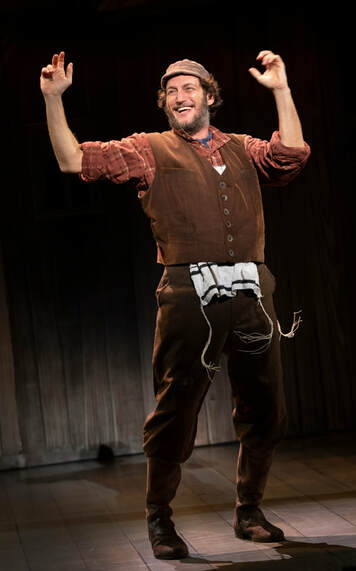 Yehezkel Lazarov as Tevye in "Fiddler on the Roof" at the Marcus Center for the Performing Arts in Milwaukee through February 17th. Yehezkel Lazarov as Tevye in "Fiddler on the Roof" at the Marcus Center for the Performing Arts in Milwaukee through February 17th. By Mary Boyle Even if you've never seen a production of Fiddler on the Roof, it's highly likely that you've heard the music: "Tradition," "Matchmaker, Matchmaker" and, of course, the quintessential "If I Were A Rich Man." Opening on Broadway in 1964, Fiddler was nominated for 10 Tony Awards and won 9 of them, including one for Best Musical. It was the first musical to surpass 3,000 performances, held the title of Longest Running Broadway Musical for nearly a decade, has seen numerous revivals, and is often seen on high school and community theatre stages. Clearly there's a reason this production has become a Broadway classic, and now you can see why for yourself, as the Broadway at the Marcus Center series presents Fiddler on the Roof through February 17th. Based on the turn-of-the-twentieth-century stories of the Jewish settlements in Imperial Russia by Sholom Aleichem, Fiddler is the tale of Tevye (Yehezkel Lazarov), a poor dairyman struggling to keep his wife, Golde (Maite Uzal), and his five daughters fed, clothed, and raised according to their tradition. Their life, Tevye says, is "as precarious as the perch of a fiddler on a roof." Tevye's oldest daughter, Tzeitel (Mel Weyn), is ready to wed and, according to tradition, she must accept whoever the Matchmaker Yente (Carol Beaugard), chooses for her, but the matchmaker is not known for her good choices. In her mind, "A bad husband, God forbid, is worse than no husband, God forbid." Torn between his faith and what his daughters truly want, Tevya seems to be pushed further and further from the tradition that binds their community together, while the community, itself, is being pushed by the Russians. With book by the Joseph Stein, music by Jerry Bock, lyrics by Sheldon Harnick, and choreography inspired by the original Broadway Director and Choreographer, Jerome Robbins, this 2015 revival of Fiddler on the Roof, directed by Bartlett Sher and choreographed by Hofesh Shechter, is steeped in a tradition of its own. The cast is unbelievably talented, led by Yehezkel Lazarov as Tevye, who delivers a brilliant performance. Though the music of Fiddler is familiar to most, the dancing in the production is equally impressive and inspiring. From set design to costumes and orchestra to cast, this production has that "larger than life" feel to it that a true Broadway production should have. If seeing a "real" Broadway show is on your bucket list, don't miss this one. Fiddler on the Roof runs through Sunday, February 17th at the Marcus Center for the Performing Arts Uihlein Hall, located at 929 N. Water St. in Milwaukee. Tickets may be purchased by calling 414.273.7206 or online at: https://www.marcuscenter.org/show/fiddler-on-roof The 2018/19 Broadway at the Marcus Center series has more great shows coming up this season! Join them for Phantom of the Opera, The King and I, Come From Away, and Anastasia. The 2019/20 Broadway at the Marcus Center series has just been announced, and includes Hamilton, My Fair Lady, The Lion King, and Dear Evan Hansen! 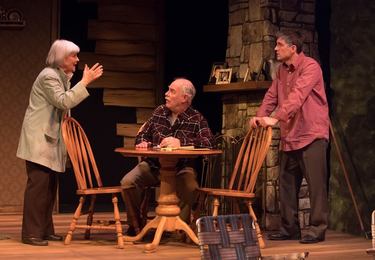 Susan Sweeny as Peg, James Pickering as Gunner, and Simon Jon Provan as Jack in "The Outgoing Tide" at In Tandem Theatre, through March 18, in Milwaukee. Photo by Mark Frohna. Susan Sweeny as Peg, James Pickering as Gunner, and Simon Jon Provan as Jack in "The Outgoing Tide" at In Tandem Theatre, through March 18, in Milwaukee. Photo by Mark Frohna. By Mary Boyle Aging is a certain and unavoidable fact of life, and caring for the elderly in our families is something every generation from the beginning of time has had to do; and yet, the way it is done, and the landscape it is done in, has changed dramatically over time—particularly over the past 50 years. While the wonders of modern medicine and improved safety, keep us alive longer, it also means we live long enough to experience the decay of old age: loss of mobility, memory issues, and long-term health problems. At the same time, family dynamics have changed; quite often, both parents need to work to support a family, and can no longer bear the burden of caring for an aging parent. The growing number of nursing homes, assisted living facilities, and home health care businesses attest to the fact that families are often choosing, or are forced, to relinquish the responsibility of care to others. What, then, is an elderly person to do when they can no longer care for themselves, but don't wish to be a burden to their family or to enter a care facility? This is just one of the questions to ponder in The Outgoing Tide, written by Bruce Graham and directed by Chris Flieller, at In Tandem Theatre in Milwaukee. Gunner (James Pickering) and his wife, Peg (Susan Sweeny), have enjoyed a quiet retirement at what was once their summer home on Chesapeake Bay, but Gunner has begun to experience frequent bouts of dimentia. When their son, Jack (Simon Jon Provan) comes for a visit, his mother begs him to help her convince his father to move into a retirement home; however, Jack has already visited it, and he's not so sure it's the best place for his Dad. While Gunner has moments when he doesn't recognize his own son, he does know one thing for certain: he didn't work hard all his life to give his money to "a bunch of doctors," and he isn't going to be one of those "vegetables" sitting in a wheelchair. In fact, Gunner has a plan to make sure that he doesn't end up that way, but he wants Jack and Peg's approval. Will they give it to him? More importantly, should they? While the topic may not seem like a good time at first glance, Gunner is quite the character, and he keeps the audience laughing throughout the play, often at his own expense. A blue collar, hardworking man's man who loves to fish and married his high school sweetheart, Gunner, played flawlessly by Milwaukee's own James Pickering, is easily recognizable—everyone has a father, grandfather or uncle like Gunner. In fact, all of the characters are relatable and familiar, and their experiences and struggles are the experiences and struggles of our age, making this production as personal as perhaps any play I've ever seen. Alternatingly funny and poignant, The Outgoing Tide forces us to ask ourselves difficult questions about life and death, and opens conversations that we all should have. People have asked me, "Is it a sad play?" It's not. That being said, what it is will likely look different to each viewer: thought-provoking, surprising, eye-opening—perhaps even hopeful and heroic. You have to see it for yourself to decide. The Outgoing Tide runs through March 18th at In Tandem Theatre, located at 628 N. 10th St. in Milwaukee. Tickets are available by calling (414) 271-1371 or online at www.intandemtheatre.org. About In Tandem Theatre In Tandem Theatre, a 501(c)3 nonprofit theatre located in Milwaukee, was founded in 1998 by Chris and Jane Flieller with the commitment to produce exciting, innovative and professional live theatre by presenting creative and eclectic programming that enlightens, inspires, provokes, and entertains a diverse audience in an intimate atmosphere. Its name, In Tandem Theatre, reflects the connection between audience and actor, the audience and the written word – an intimate experience obtained when live audiences are engaged in strong storytelling. In Tandem Theatre is committed to creating innovative, exciting live theatre designed to inspire, enlighten, provoke and entertain a diverse audience through comedy, drama, musicals, classics and new works.  Dimonte Henning as the Scarecrow, Darrington Clark as the Tin Man, Reese Parish as Dorothy, and James Carrington as the Lion in the First Stage production of "The Wiz" at Todd Wehr Theater in Milwaukee through March 25th. Photo by Paul Ruffolo. Dimonte Henning as the Scarecrow, Darrington Clark as the Tin Man, Reese Parish as Dorothy, and James Carrington as the Lion in the First Stage production of "The Wiz" at Todd Wehr Theater in Milwaukee through March 25th. Photo by Paul Ruffolo. By Mary Boyle The story of The Wizard of Oz is ingrained in American culture Written by L. Frank Baum, an American children's novelist, the story was a hit upon publishing in 1900, and was made into a Broadway musical just two years later. The movie we all know and love, based on the musical, arrived in 1939, and has the honor of being the very first film made in Technicolor. Then, in 1975, a new musical version of this classic tale made its way to Broadway with a modern African-American setting. The Wiz won seven Tony Awards, including one for Best Musical, and was one of the first Broadway productions with an all-black cast. Now, you can see this groundbreaking musical for yourself, thanks to First Stage. On a farm in Kansas, Dorothy (Camara Stampley/Reese Parish) lives with her Aunt Em (Cynthia Cobb, who also plays Glinda) and Uncle Henry (Shawn Holmes), and her little dog, Toto, of course. When a twister hits, Dorothy's house is flung to the land of Oz, accidentally landing on the Wicked Witch of the East. The munchkins rejoice, and the Good Witch of the South, also known as Addaperle (Candace Thomas), gives Dorothy the silver slippers off of the deceased witch's feet, and sends her off to see The Wiz to see if he might be able to send her back home. Along the way, Dorothy meets a Scarecrow (Dimonte Henning) in need of a brain, a Tin Man (Darrington Clark) in need of a heart, and a cowardly Lion (James Carrington) in need of some courage. They arrive in the Emerald City and meet The Wiz (Shawn Holmes) at last, but he won't give them anything unless they kill the Wicked Witch of the West, Evilene (Raven Dockery). Alex Radtke, of Cedarburg, who makes his debut with First Stage in The Wiz, is a part of the "Winkie" cast of young performers. Alex plays a Munchkin, Winkie, and a crow in Scarecrow's garden. Though he isn't a complete stranger to acting, Alex said First Stage "is more of a real deal." By the end of the show, Alex will have performed his parts 27 times to both public and school audiences. Directed by Sheri Williams Pannell and Ameenah Kaplan, The Wiz remains true to its roots. The costumes by Theresa Ham feature traditional African designs and fabrics, and the adult cast is populated by some of Milwaukee's best black performers. The set, designed by Kurtis Boettcher, had the amazing ability to go from a Kansas Farm to the Emerald City by a simple change of lighting. The Wiz, himself, is inspired by none other than the great James Brown, and Shawn Holmes truly creates a larger-than-life character. James Carrington is absolutely perfect as the Lion, and Raven Dockery is spectacular as Evilene. The Young Performers are double cast, and I saw the Winkie Cast, featuring Camara Stampley as Dorothy, who really held her own with the adult performers. If Todd Wehr Theater could only hold an orchestra, this would be a Skylight-worthy musical. All in all, this family-friendly telling of The Wiz is a road everyone will want to "ease on down" together! The Wiz runs through March 25th at the Todd Wehr Theater, located at 929 N. Water Street in downtown Milwaukee. Tickets may be purchased at www.firststage.org or through the Marcus Center box office, in person at 929 N. Water Street in downtown Milwaukee or by phone (414) 273-7206 or toll free at (888) 612-3500. About First Stage First Stage is one of the nation’s leading theaters for young people and families. First Stage touches hearts, engages minds, and transforms lives by creating extraordinary theater experiences through professional theater productions that inspire, enlighten, and entertain. Its Theater Academy, the nation’s largest high-impact theater training program for young people, fosters life skills through stage skills and serves over 2,100 students each year. As Wisconsin’s leader in arts-integrated education in schools, First Stage’s dynamic Theater in Education programs promote literacy, character building, and experiential learning throughout the curriculum, serving over 20,000 students each year. First Stage was selected to participate in the Partners in Education program of the John F. Kennedy Center for the Performing Arts (2012), and was the recipient of the Milwaukee Business Journal’s Eureka Award, recognizing creativity and innovation in business, education, and the arts for its Next Steps program for students with autism (2013, 2015). First Stage is a member of TYA/USA, the American Alliance for Theatre and Education, the Wisconsin Alliance for Arts Education, Theatre Wisconsin, Milwaukee Arts Partners, and is a cornerstone member of the United Performing Arts Fund (UPAF). 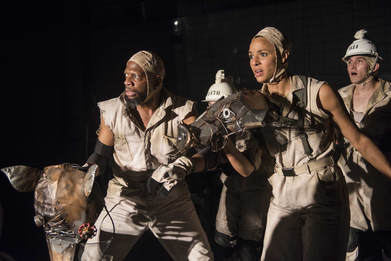 Milwaukee Repertory Theater presents Animal Farm in the Quadracci Powerhouse from January 9 through February 11, 2018. Left to Right: Melvin Abston, Tiffany Rachelle Stewart and Brade Bradshaw. Photo by Michael Brosilow. Milwaukee Repertory Theater presents Animal Farm in the Quadracci Powerhouse from January 9 through February 11, 2018. Left to Right: Melvin Abston, Tiffany Rachelle Stewart and Brade Bradshaw. Photo by Michael Brosilow. By Mary Boyle George Orwell's Animal Farm, the allegorical tale of the Bolshevic Revolution published in 1945, is enjoying a renewed popularity in our country, as of late. A leader who appeals to the concerns of the working class, only to gain power for himself, seems to resonate with many; history, as they say, has a tendency to repeat itself. Last season, the First Stage Young Company staged a splendid production of the story, and now The Rep brings Animal Farm to a larger stage at the Quadracci Powerhouse Theater. This adaptation by Ian Wooldridge, directed by May Adrales, scales down both the language and the characters in the story, and uses movement, music, and the use of puppets to fill the void. Scenic Designer, Andrew Boyce, liberates the story from its English farm, and sets it instead in a dark, dirty industrial building, complete with disturbing fluorescent lighting. Only eight actors cover over 12 characters, which Costume Designer Izumi Inaba has dressed in a ragged one-piece white coverall paired with black combat boots. Only their masks, which are rarely used to cover their faces, and a few spare props distinguish their individual characters. All this sparseness means that the actors must carry the bulk of the storytelling, which they do, and they do it well. Farmer Jones's prize pig, Old Major (Stephanie Weeks), has grown old and wise, and passes on what he's learned over his life to the other animals on Manor Farm: that all animals are equal, and no animal should ever have tyranny over or kill another animal; that their lives would be better if they were free of the rule of men, who are all evil and, once free of them, animals must never adopt their habits or vices. Old Major envisioned a time in the future when animals would rise up and overthrow men, and he taught them a special song called "Beasts of England" to remind them of their destiny. Shortly after Old Major dies, the animals have their revolution and run Farmer Jones off the farm. The pigs on the farm, Snowball (Brendan Titley), Squealer (Tiffany Rachelle Stewart), and Napoleon (Melvin Abston), quickly take the lead, since they can read and write, enforcing a set of laws based on Old Major's advice, called Animalism, and renaming the farm Animal Farm. The big draft horse, Boxer (Weeks), and his helpmate, Clover (Deborah Staples), are sure that their lives will improve, but the old donkey, Benjamin (Jonathan Gillard Daly) is skeptical, and Mollie (Stewart), the fancy carriage horse, can't quite swallow that freedom doesn't include lumps of sugar and ribbons in her hair. Rep Associate Artists and Milwaukee favorites, Jonathan Gillard Daly and Deborah Staples, remind us why they're favorites in this production. Daly plays the only two humans in the show: Farmer Jones in the beginning and Farmer Pilkington at the end, but he really shines as the perpetually grumpy but wise old donkey, Benjamin. Staples embodies the confusion and doubt that eventually becomes horror, as Clover realizes the truth about what is happening on the farm. I admit I was doubtful that a small woman could pull off the part of Boxer, but Stephanie Weeks convinced me, and Tiffany Rachelle Stewart brought much needed humor and style to both of her roles. Melvin Abston's Napoleon was slick, and I particularly liked his portrayal of the salvation-slinging raven, Moses. From set design to costumes, the whole production of Animal Farm is designed to feel uncomfortable, and that's as it should be, because the story takes on some very uncomfortable truths: that a population that is uneducated is easily manipulated and taken advantage of; that when people have too much power, they tend to abuse it; that when a certain section of the population is deemed better than or less than the rest of the population, bad things happen for most of the population; that keeping your head down and working harder when things get bad is actually not the solution to any problems. The crazy thing about Animal Farm is that, in essence, it is a story that has played out over and over again throughout the course of human history, yet people somehow fail to recognize and learn from it. What makes the story so relevant today is that there is evidence of it happening here and now and, if we don't pay attention, history will most assuredly repeat itself. The time is now to address these uncomfortable truths, and Animal Farm is an excellent conversation starter. Animal Farm runs through February 11th at the Quadracci Powerhouse Theater, located at 108 East Wells Street in Milwaukee. Tickets can be purchased online at www.milwaukeerep.com, by calling (414) 224-9490, or in person at the Box Office, also located at 108 E. Wells St. About The Rep In its 64th Season, Milwaukee Repertory Theater is dedicated to providing the highest level of professional theater to Milwaukee and Wisconsin, in addition to offering a wide range of educational and community programs. Under the leadership of Artistic Director, Mark Clements, and Managing Director, Chad Bauman, Milwaukee Repertory Theater ignites positive change in the cultural, social, and economic vitality of its community by creating world-class theater experiences that entertain, provoke, and inspire meaningful dialogue among an audience representative of Milwaukee's rich diversity. By Mary Boyle I am an enormous fan of Children's Literature, and one of my very favorite storytellers is Kate DiCamillo, the award-winning author of Because of Winn-Dixie and The Tale of Despereaux (both of which were made into films), among many others. Although it is not one of her best-known books, my very favorite novel by DiCamillo is The Miraculous Journey of Edward Tulane, so I was thrilled to see what First Stage would do with it. What I love most about DiCamillo's writing is that she doesn't talk down to children, and she doesn't try to soften or sugarcoat the hardness and bitterness of life, which makes her fairy tales relatable and appealing to all ages. The story is perhaps what would happen if you combined The Velveteen Rabbit by Margery Williams and The Alchemist by Paulo Coelho; a story of love, but also a story in which the main character must travel far and go through trials and tribulations so that, when he returns home again, he realizes everything he needed was right there, but he wouldn't have ever found it without the lessons he learned on his journey. Such is the case with Edward, who is an expensive and well-made China rabbit. Being made of China, Edward can't talk, but he has his thoughts, which are eloquently expressed by the amazing Matt Daniels, who was recently seen at First Stage as Snoopy in A Charlie Brown Christmas. Edward was a custom-made gift for a little girl named Abilene Tulane (Young Performers, Marianna Malinkine/Bryn Dresselhuys) from her grandmother, Pellegrina (Karen Estrada). Abilene loves Edward very much but, alas, Edward, who is rather full of himself, is more concerned about how he looks and is handled than how much he is loved, until he is lost. Edward's unintended journey will take him through Depression-Era America, where he will learn some very important lessons about what it means to love, and to be loved. Fans of the book will be relieved to know that the stage adaptation by Dwayne Hartford is quite true to the story, but you needn't have read the book to appreciate this performance. Only four adult actors (Brian Keys, Matt Daniels, Karen Estrada, and Kat Wodtke) and two young performers (Double Cast: Kamani Graham with Marianna Malinkine and Bradley Nowacek with Bryn Dresselhuys) play all of the characters from the story, and each of them also contributes to the music, which is played live onstage. Directed by John Maclay, with Music Direction by Jeff Schaetzke, The Miraculous Journey of Edward Tulane is an enchanting, heart-wrenching, beautiful voyage, and you will be all the better for taking the trip. The Miraculous Journey of Edward Tulane runs through February 11th at the Todd Wehr Theater, located at 929 N. Water Street in downtown Milwaukee. Tickets may be purchased at www.firststage.org or through the Marcus Center box office, in person at 929 N. Water Street in downtown Milwaukee or by phone (414) 273-7206 or toll free at (888) 612-3500. About First Stage First Stage is one of the nation’s leading theaters for young people and families. First Stage touches hearts, engages minds, and transforms lives by creating extraordinary theater experiences through professional theater productions that inspire, enlighten, and entertain. Its Theater Academy, the nation’s largest high-impact theater training program for young people, fosters life skills through stage skills and serves over 2,100 students each year. As Wisconsin’s leader in arts-integrated education in schools, First Stage’s dynamic Theater in Education programs promote literacy, character building, and experiential learning throughout the curriculum, serving over 20,000 students each year. First Stage was selected to participate in the Partners in Education program of the John F. Kennedy Center for the Performing Arts (2012), and was the recipient of the Milwaukee Business Journal’s Eureka Award, recognizing creativity and innovation in business, education, and the arts for its Next Steps program for students with autism (2013, 2015). First Stage is a member of TYA/USA, the American Alliance for Theatre and Education, the Wisconsin Alliance for Arts Education, Theatre Wisconsin, Milwaukee Arts Partners, and is a cornerstone member of the United Performing Arts Fund (UPAF). |
Archives
June 2024
Categories
All
|
Published By: |
|





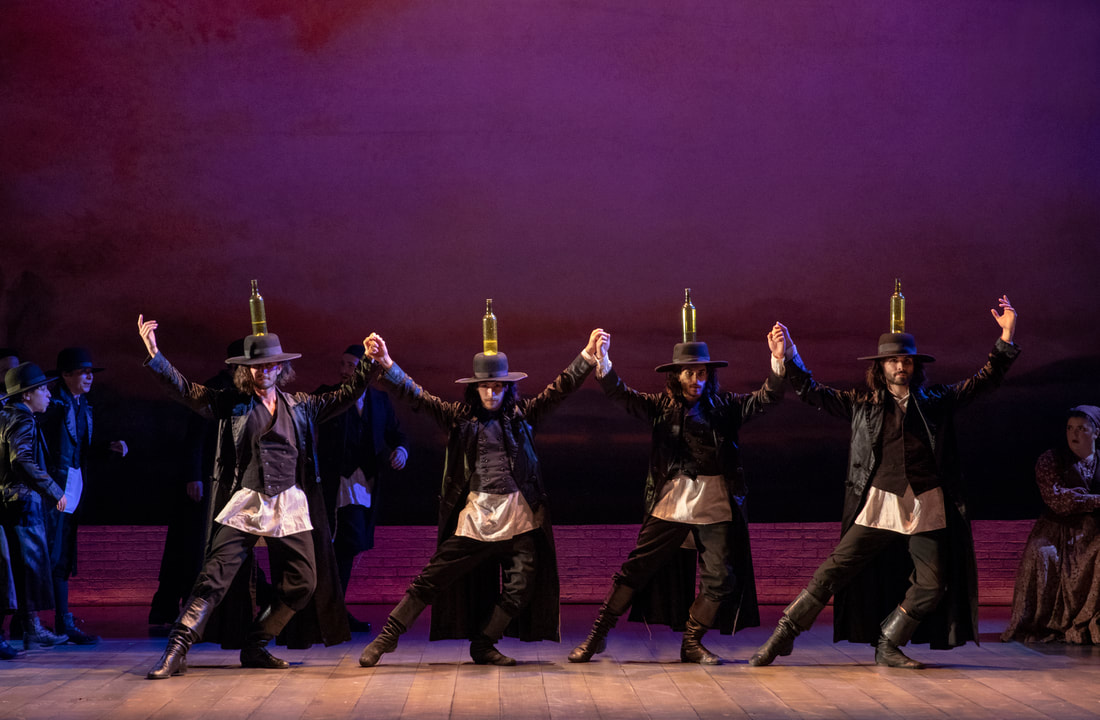
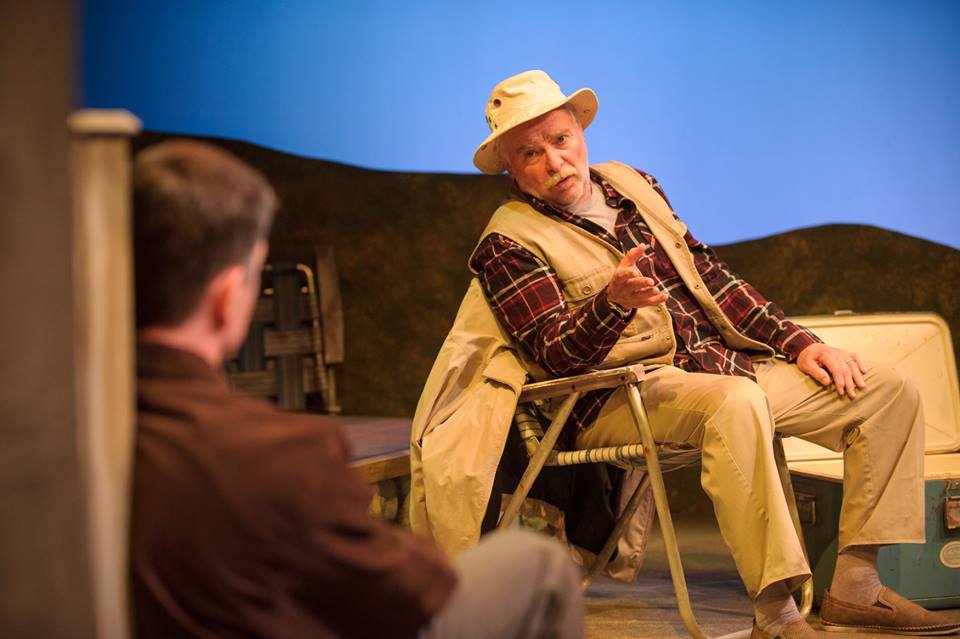

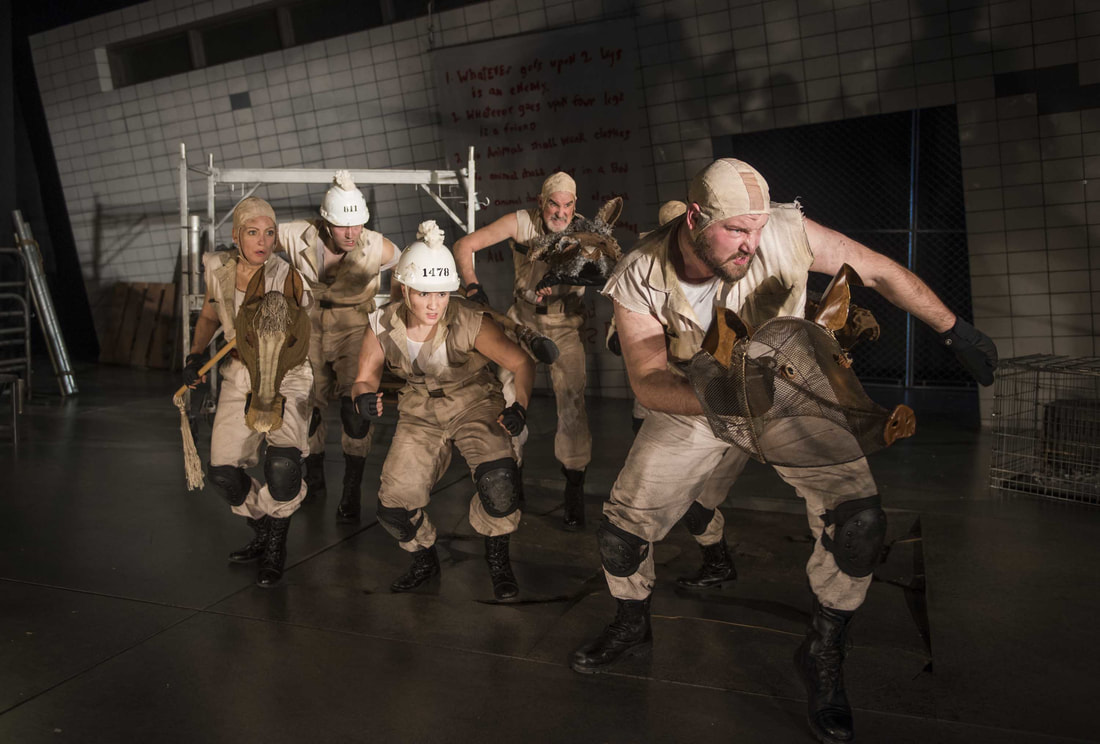

 RSS Feed
RSS Feed
